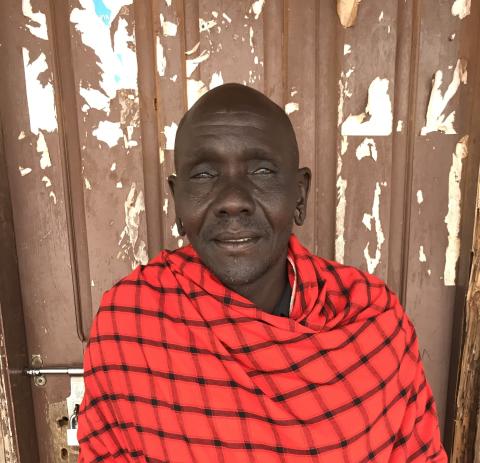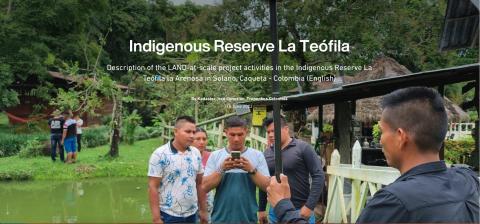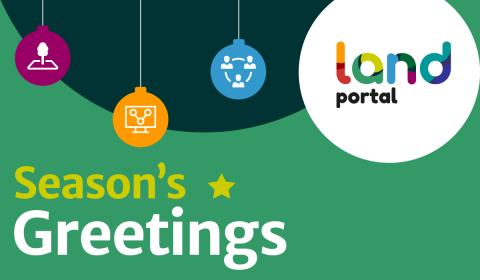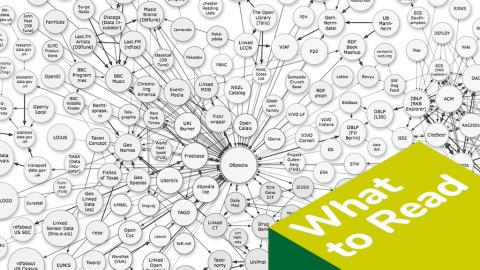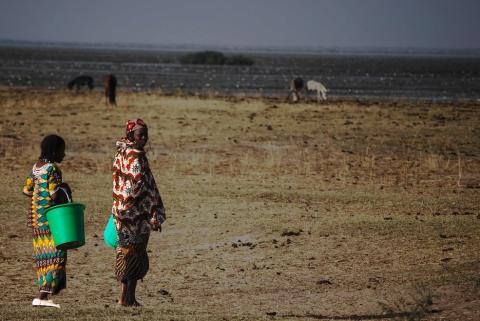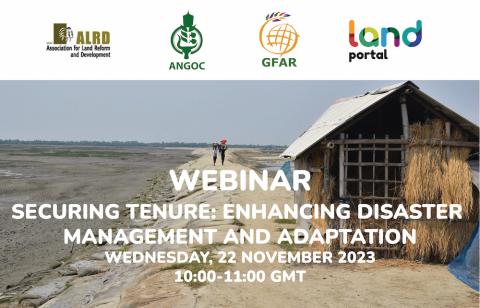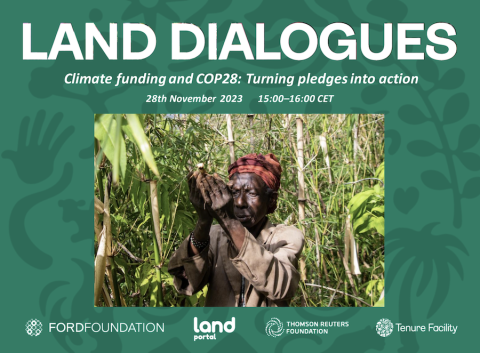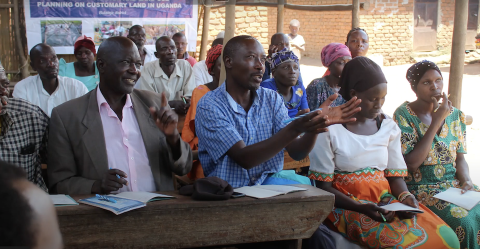Discover hidden stories and unheard voices on land governance issues from around the world. This is where the Land Portal community shares activities, experiences, challenges and successes.
 Follow our
Follow our
Sustainable Development Goals
Blog Series!
Interested in land corruption?
Follow our Land & Corruption Blog Series
for in-depth perspectives from the experts.
Issues
Geographical focus
This data story has been originally published in May 2022, but updated in January 2024.
By Peter Sangeyon, Gender and Land Champion, WOLTS Project Tanzania
From 1995 to 2005 I was the village chairman, and I was a ward councillor for ten years after that. I was very pleased when the community selected me to be a WOLTS gender and land champion.
This data story has been originally published in June 2022, but updated in January 2024.
A Contribution by Jes Weigelt, Moritz Hauer & Frederike Klümper (TMG Research)
Land Rights and Gender Responsive Climate Action Seminar
Dear Friends and Colleagues:
As we get to the end of the year, I want to sincerely thank you for your support and trust in 2023.
Ensuring secure land tenure is crucial for improving land development, as both local and foreign investors often hesitate to engage in land transactions when there is uncertainty about ownership rights. The term "Land Tenure Insecurity" refers to the apprehension that someone else might claim ownership of the purchased land in the future, creating a significant risk for investment. This phenomenon is particularly common in the Sub-Saharan African Region of which Ghana is no exception. The positive impact of land tenure security is far-reaching.
This blog post is part of the series What to Read.
In a 2009 TED Talk with over 35 million views, Nigerian novelist Chimamanda Ngozi Adichie speaks about the danger of a single story and the simplifications that they promote. Her observations are highly pertinent in the case of the Sahel. Persistent single stories in the media and the international policy sphere portray the Sahel region as an area of intractable conflict, drought, famine and displacement, but lack meaningful explanation.
Climate-change induced disasters and communities’ responses to protect themselves and design solutions have become a top priority on the climate agenda. This webinar aimed to draw attention to the underexplored nexus of climate change, natural disasters, and tenure (in)security through presentations from participants from across regions.
Suggested questions that the webinar addressed were:
Under the umbrella of the Land Dialogues series, the third webinar of this year’s series “Climate Funding and COP28 : Turning Pledges into Action” took place on November 28th, 2023. The webinar drew in a little under 200 participants and featured panelists from Indigenous leaders to donors. The series is organized by a consortium of organizations, including the Land Portal Foundation, the Thomson Reuters Foundation, the Ford Foundation and the Tenure Facility.
On the opening day of #COP28, we hosted a webinar, “Building Climate Resilience through Inclusive Land Governance,” that delved into the crucial role which inclusive land governance plays in building climate resilience.
Two years after international donors pledged $1.7 billion to Indigenous Peoples at COP26, a recognition of their crucial role in protecting biodiversity and carbon capture, there has been good progress in preparing the systems needed for the money to be disbursed.


